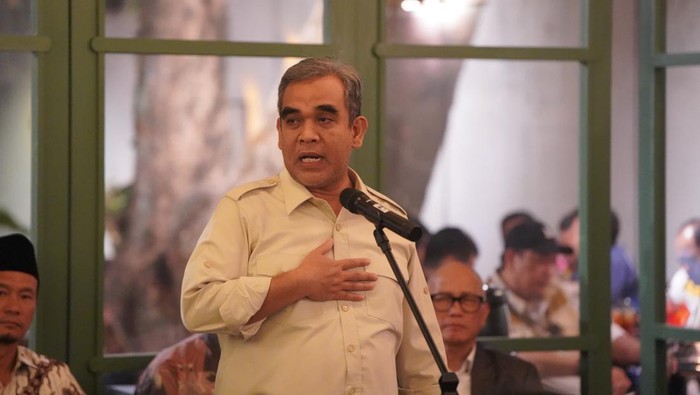

Get ready, Indonesia! The political landscape is about to witness a groundbreaking alliance as Prabowo and Gibran join forces to shape the future of the nation. The Prabowo-Gibran Cabinet by Gerindra is set to make waves in 2024, promising a new era of leadership and governance. Let’s dive into the details of this dynamic partnership and what it means for the country!
Background and Goals of the Cabinet
The Prabowo-Gibran Cabinet, formed by Gerindra, has sparked intrigue and speculation across Indonesia. This unique coalition brings together the political prowess of Prabowo Subianto with the fresh perspective of Gibran Rakabuming Raka. The background of this cabinet stems from a desire to bridge generational gaps in leadership and bring innovative solutions to the forefront. With a focus on economic growth, social welfare, and sustainable development, the goals of this cabinet are ambitious yet promising.
By uniting different political parties under one umbrella, the cabinet aims to create a diverse and inclusive governance structure that represents the needs and aspirations of all Indonesians. The synergy between experienced leaders and young visionaries is expected to drive positive change in various sectors. As we delve deeper into the complexities of this new government formation, it becomes evident that its success hinges on effective communication, collaboration, and implementation strategies. Only time will reveal how these ambitious goals translate into tangible outcomes for Indonesia’s future.
Analysis of the Political Parties Involved
The formation of the Prabowo-Gibran cabinet by Gerindra has sparked curiosity and speculation among political analysts. This unique collaboration between two major parties, Gerindra and PDIP, brings together different ideologies and strengths to create a diverse governing body.
Each party involved in this coalition brings its own set of priorities and policies to the table. Gerindra’s focus on economic development and national security aligns with Prabowo Subianto’s vision for Indonesia’s future. On the other hand, PDIP’s emphasis on social welfare programs resonates with Gibran Rakabuming Raka’s commitment to improving the lives of ordinary Indonesians.
The dynamic interplay between these parties will undoubtedly shape the decision-making process within the cabinet. As key players negotiate their roles and responsibilities, it remains to be seen how conflicts may arise due to differing agendas or competing interests. The involvement of multiple political parties in the Prabowo-Gibran Cabinet signifies a new era of collaborative governance in Indonesia.
Key Players in the Cabinet
The Prabowo-Gibran cabinet brings together a diverse group of key players from various backgrounds and expertise. Prabowo Subianto, the seasoned politician with military experience, is set to lead the cabinet as president. His leadership style and strong presence in Indonesian politics make him a central figure in this new administration.
Gibran Rakabuming Raka, the young entrepreneur and son of former President Joko Widodo, adds a fresh perspective to the cabinet. With his business acumen and connections within the private sector, Gibran is expected to bring innovative ideas to drive economic growth and development. Other key players include prominent figures from Gerindra Party and other coalition partners who will hold crucial ministerial positions. Their collaboration and collective efforts are vital for steering Indonesia towards progress and prosperity under the Prabowo-Gibran leadership.
Predicted Ministries and Departments
As the formation of the Prabowo-Gibran cabinet by Gerindra unfolds, speculation about the predicted ministries and departments intensifies. With Prabowo Subianto from Gerindra and Gibran Rakabuming Raka from PDIP at the helm, key positions are anticipated to be strategically distributed among coalition parties.
Given Prabowo’s military background and experience in defense matters, it is expected that he may lead a crucial ministry like Defense or Security. On the other hand, Gibran’s expertise in entrepreneurship could see him take on an economic-focused portfolio such as Trade or Industry. The allocation of ministries and departments will not only reflect each party’s strengths but also aim to address Indonesia’s pressing issues effectively. This careful selection process will shape the direction of policy-making for years to come.
Potential Conflicts and Challenges
As with any new cabinet formation, the Prabowo-Gibran alliance may face potential conflicts and challenges along the way. One of the primary issues could stem from differing ideologies and priorities between Gerindra and other political parties involved in the coalition. Moreover, balancing power dynamics within the cabinet can also pose a challenge, especially considering Prabowo’s military background and Gibran’s lack of experience in politics at such a high level. This could lead to internal tensions regarding decision-making processes and policy directions.
Additionally, managing public expectations while navigating complex bureaucratic structures is another hurdle that the cabinet may encounter. The diverse interests of various stakeholders within Indonesia’s political landscape may further complicate matters for Prabowo and Gibran as they strive to govern effectively. It will be intriguing to see how these potential conflicts and challenges are addressed by the Prabowo-Gibran cabinet moving forward.
Public Reaction and Expectations
The public’s reaction to the Prabowo-Gibran cabinet announcement has been a mix of curiosity and skepticism. Many are intrigued by the unexpected alliance between these two prominent figures from different political backgrounds. Some see it as a bold move that could bring fresh perspectives to Indonesia’s governance, while others are concerned about potential conflicts of interest.
Expectations run high as people await more details on the key players and predicted ministries. Citizens are eager to see how this coalition will address pressing issues such as economic development, social welfare, and environmental sustainability. There is hope for innovative solutions and inclusive policies that prioritize the well-being of all Indonesians.
Amidst the excitement, there are also concerns about power struggles within the cabinet and possible clashes between different factions. The public is watching closely to see how these challenges will be navigated and whether unity can prevail over division in this new era of leadership. Anticipation is palpable as Indonesians brace themselves for the impact of the Prabowo-Gibran cabinet on their daily lives and future prospects.
Conclusion
The Prabowo-Gibran Cabinet grid revealed by Gerindra has sparked a wave of anticipation and speculation among the Indonesian public. With key players from different political parties coming together, there is a sense of both hope and caution surrounding this new development. As we look ahead to the potential ministries and departments that will form this cabinet, it’s clear that there are challenges and conflicts that may arise. Balancing the interests of various parties while striving for effective governance will be no easy feat.
The public reaction to this announcement has been mixed, with expectations running high for what this new cabinet could achieve. As Indonesia heads into 2024, all eyes will be on Prabowo-Gibran and their team as they navigate the complexities of leading the nation forward. With so much at stake, only time will tell how successful this cabinet grid will be in shaping Indonesia’s future.






